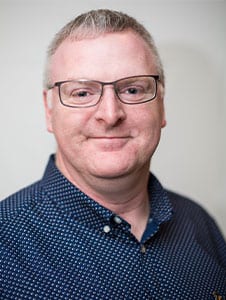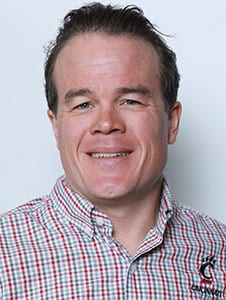Life has been turned upside down during the COVID-19 pandemic with travel restrictions, self-isolation/ quarantining requirements, and social distancing measures implemented to slow the spread of the virus. The world must go on, services and products must be delivered. But applying traditional methods will not be sufficient. Current restrictions do not appear to be going anywhere, therefore our collective approaches to how we do our work needs to adapt and alternative strategies are necessary to commission your facility.
Data center and mission critical facilities require specialists from around the world. Given the enhanced measures being put in place by governments, owners, and safety professionals, constraints have been placed on construction sites and commissioning approaches so the job can be done in a safe and timely manner.
Constructions sites have implemented social distancing measures, masking/face covering, temperature checks, and other practices to help slow the spread of COVID-19. Certain governments have placed additional local restrictions making commissioning practices more difficult. Specialized experts may not be able to show up onsite if they are in an “at-risk” group to protect their own health or travel restrictions in place prevents their travel to site.
With enhanced travel restrictions, commissioning personnel may need more time getting to and into the location where they are needed. Some of the restrictions could be self-quarantining requirements for two weeks upon arrival into a country before being able to travel to site. Additionally, the availability of flights may be limited as air travel has greatly reduced in this unusual time period. Commissioning schedules need to take travel restrictions in place.
When doing physical work on site, for example inspections of equipment, additional time may be needed to allow all the necessary parties to limit close contact, allow social distancing, and potential sanitizing of the equipment or tools used. During the start-up (L3) process, you will need to limit how many people can witness it, and you may need to set up a way to be able to remotely witness the process. The same goes for the Functional Testing (L4) and Integrated Systems Testing (L5). Again, commissioning schedules need to take these constraints into account.
Where travel to a location is not possible, remote witnessing is an alternative strategy that can be employed. This can be achieved via a range of platforms including Zoom, Web-Ex, Microsoft Teams, or other video meeting application/software. Successful remote witnessing does not happen without planning and coordination. To successfully complete remote witnessing, multiple cameras may be needed while allowing multiple camera angles to be viewed at the same time. Robust commissioning communication will be important and what the remote persons need to actually witness, for example Generator Load runs where there is significant environmental noise can be challenging. Remote personnel need to be vocal during the witnessing activities to get their viewpoints across, identify the views, data, and system information they want to see. Successful remote commissioning activities are directly tied to the technology being used, and the detail and effort that is applied by the factory or on-site team.
Another vital aspect that needs to be addressed is succession or back-up planning. As the virus spreads around the world, commissioning team members may unfortunately catch the virus and will need to self-quarantine for potentially weeks at the time. All commissioning parties need to plan for these eventualities and prepare a “next-person-up” structure to replace various members of the team with little to no notice. If only one person has the required knowledge for a specific part of the project, the project could experience weeks of delays as that person focuses on their personal battle with COVID-19. Therefore, succession planning is one of the key aspects as we all deal with COVID-19.
About the Authors

Niall is a project management professional with over 15 years’ industry experience in technological, financial and regulated environments. Niall is currently the Client Manager and Senior Project Manager for all European data centre commissioning, actively managing multiple hyper-scale (five-nines) engagements in various countries. Niall applies rigorous project management, problem solving, lean and continuous improvement methodologies while adhering to internationally recognized processes and standards. He is a highly-regarded, professional, and flexible team leader with extensive people management, coaching and mentoring skills. These attributes have helped him increase customer satisfaction, enhance quality, increase project profitability, and reduce time-to-market.

Brian is a qualified Electrical Engineer with over 12 years of commissioning experience working in Data Centers, Hospitals, Office Buildings, airports, LEED certified mission critical facilities and more.
